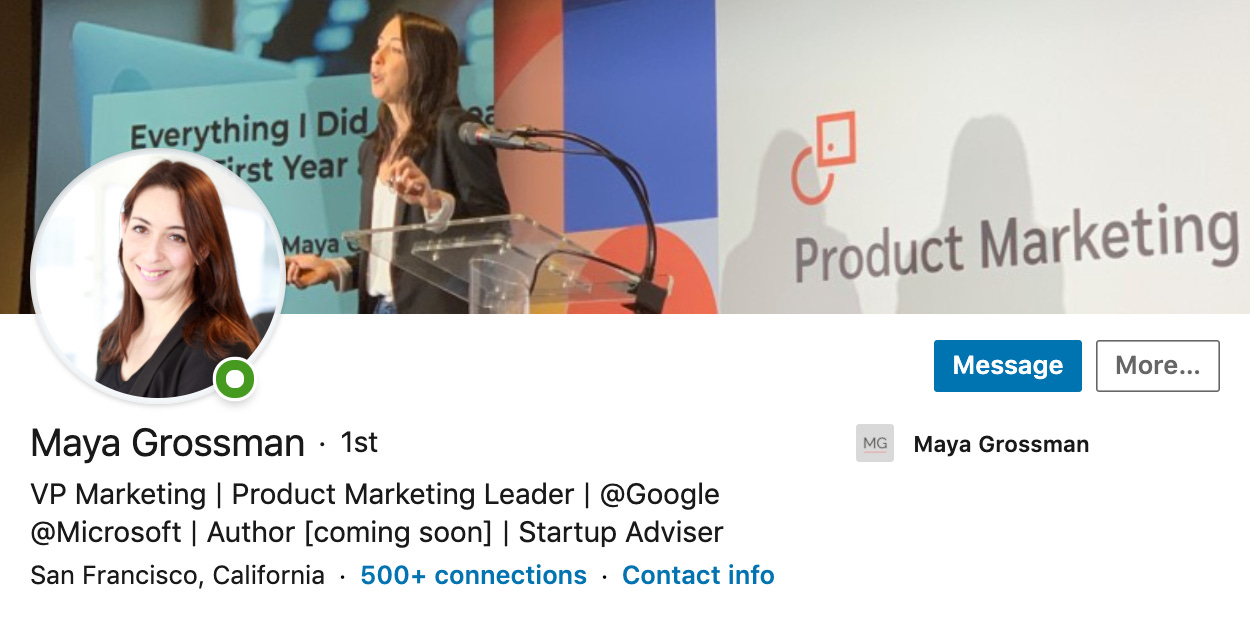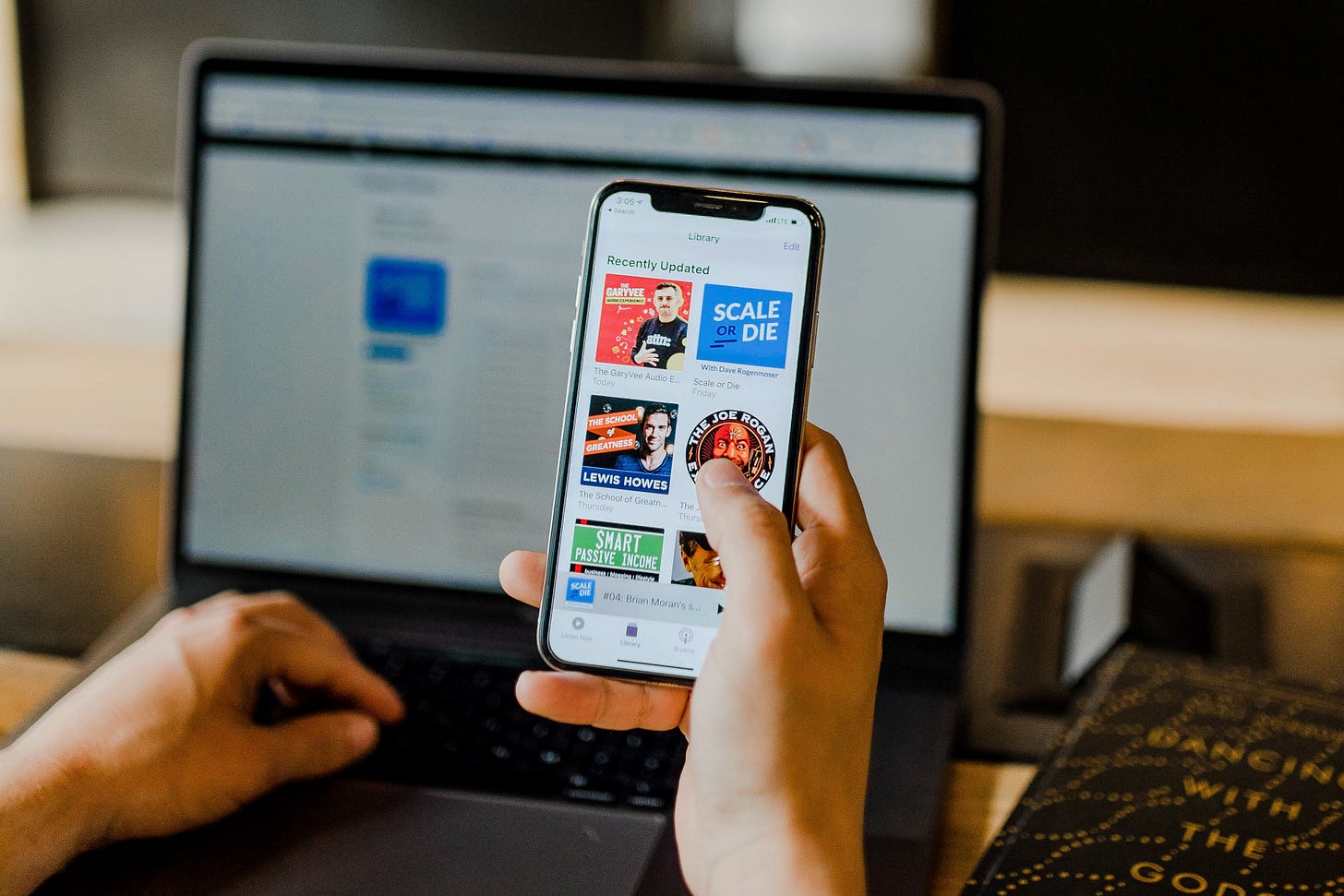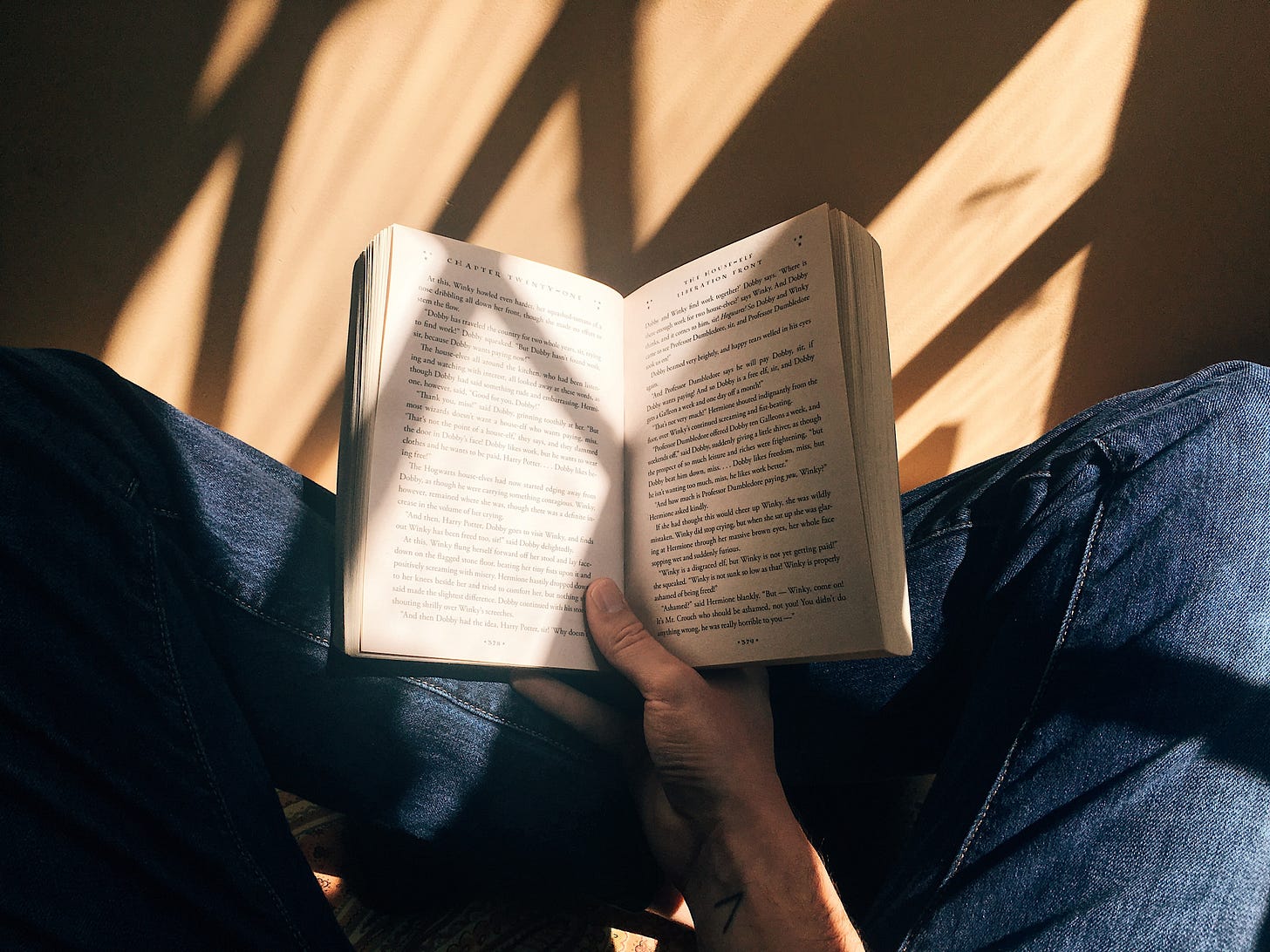Identify how you learn best

Happy Sunday! I hope you’ve been having a great week. How on earth is it mid-June? Before I go into this week’s email I have some exciting news.
I’m going to be having a chat with Maya Grossman to ask her lots of questions about marketing and achieving dream job roles. As you can see, her experience is amazing. Check out her LinkedIn profile - I loved her articles - and please reply to this email if there’s something you’d like me to ask her!

I’m probably going to pre-record the conversation and then upload it to YouTube. UNLESS I go all out and stream it live… we shall see! I really want to chip away at the nerves I feel around any form of public speaking, and collaboration is next up on my list to tackle!
One thought: Identifying how you learn best 💡
If you enjoy watching YouTube I couldn’t recommend more Ali Abdaal’s Deep Dive series. My mind was blown by Ali’s conversation with Cliff Weitzman, CEO of Speechify, and I’d strongly encourage you to go and give it a listen.
When I first read the 4-Hour Work Week by Tim Ferriss my world stopped. It was game-changing and it felt like the words were speaking directly to me. I had this feeling again listening to Cliff Weitzman about audiobooks. For the past year, I’ve been considering how I learn best and how to introduce more learning into my life.
When I used to have a commute, I use to really enjoy listening to podcasts. Without really realising it, I was taking in 2 hours of learning per day, resulting in a total of 10 hours a week. I don’t have a commute now (even before Covid) but I tried to keep up this auditory learning through podcasts like The Tim Ferriss Show and How I Built This with Guy Raz.

Auditory learning is perfect for me because it’s just so convenient. My brother loves Audible and I can see why. We can ‘read’ our books whilst going for a walk, getting ready or doing any mundane task. Learning can become our default activity for the spare moments we have in our lives. That’s my kind of productivity hack!
If speedreading would be up your street, check out my good friend Jordan Harry, the CEO of StudyFast. If you love physical books but want to learn faster, this is a great option for you.
Reading for a Hobby Vs. Reading to Learn
My problem, which I’m sure many people can relate to, is that I don’t find the time to sit down and read. I don’t read during the day as I usually find other things to do. I learn instead from watching YouTube videos on 2x speed (I couldn’t recommend this more) or listening to podcasts. But my list of books to read is only getting longer.
I’d highly recommend having somewhere to index all of the book recommendations you come across. I have this as a Notion board, where my ‘Reading List’ is currently 50 books long. If somebody says a book was ‘game changing’ or that it ‘changed their life’, it goes on the list.
I’ve now realised that I read for one of two reasons. I’m either reading to learn or I’m reading to unwind and enjoy a book. Yes, we can do both at once, but in reality, waiting for this to happen has drastically reduced how much time I spend reading. We can always go back to a book, yet we hold ourselves back by demanding that we finish what we are currently reading. We do not do this with podcasts or audiobooks. Enter Speechify…

Speechify allows you to ‘Audiobook Anything’ and I’ve finished a book in 2 days by having it played out to me instead of reading it. This is not a sponsored mention, I just loved listening to Cliff Weitzman’s story about tackling dyslexia and how Text-to-Speech can help us all to learn more.
Cliff reads over 100 books a year and has averaged this for the past 13 years. And as the saying goes: “Leaders are readers.” Whether it’s reading one extra book a year, or month, we can all greatly benefit from expanding our knowledge and learning something new.
I’m just on the free version of the app for now where I’ve been playing through Speechify some articles I had previously saved. By reading out articles at 2x speed I’m flying through content - particularly when I’m fed up looking at screens in the evening, but still in the mood to learn.
My new routine

I’m going to start reading books before bed to switch off. Then during the day, I’m going to use Text-to-Speech and podcasts when I want to consume information efficiently.
Want to read more physical books? Try this:
Place the book you want to read on your pillow. To go to sleep, you will have to physically move it, usually resulting in you reading a few pages
Follow the advice of my good friend Ivan Falcó who recommends to only aim to read 10 pages. This removes the feeling of trying to add yet another thing to our ‘busy lives’. Of course, what happens is we usually get into the book and end up reading many chapters!
I hope you enjoyed reading this week’s email, please do share the newsletter with anybody who might be interested in thoughts around Psychology, Productivity and Personal Development.
Talk to you soon!
Joe
Content tip of the week 🚀
Post your content at optimal times! I really can’t stress this enough. If you are posting content, give it the engagement and reach it deserves by posting it when most of your audience are online. You’re putting time into creating content, so why hold it back?
Before the coronavirus, optimal times to post on LinkedIn followed the typical working day, where posting before and after 9am-5pm worked best. I still post all of my content in the morning at approximately 8.45am. Whenever I have posted in the afternoons or late evenings it significantly performs worse.
My Recommendations of the week ✍️
Productivity, Life and Principles - Deep Dive with Cliff Weitzman
Three Tricks to Help Anyone Read Faster - Jordan Harry
This Week’s YouTube Video - Subscribe here! 🎥

I’m Joe, a content marketer passionate about personal development and psychology. Every Sunday, I write an email newsletter with 1 thought, 1 content tip and 1 article I’d recommend. Usually, I go over-board and provide a little more 😁
Add me on LinkedIn + subscribe to my YouTube channel for LinkedIn tips!



